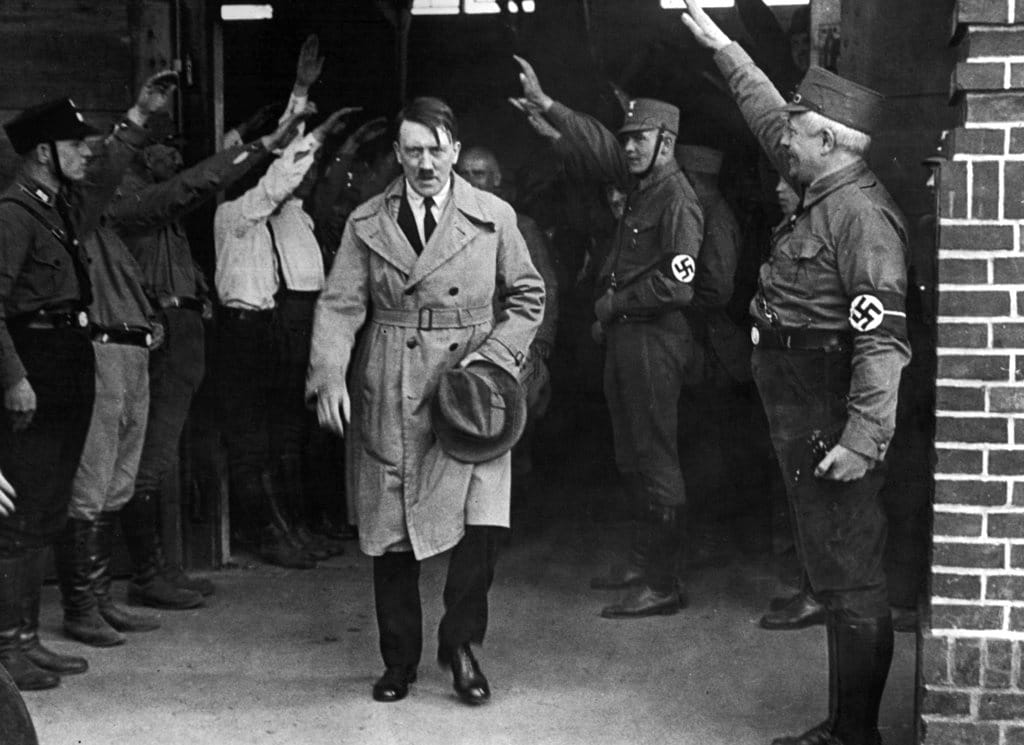One case that is sometimes overlooked in discussions of the First Amendment is that of Baumgartner v. United States. The primary issue at stake had to do with whether a naturalized citizen who lived in Kansas City, Missouri, could lose his citizenship for falsely renouncing allegiance to Germany upon naturalization.
Part of the case rested on an underscoring of free expression rights enjoyed by all citizens, including naturalized citizens, under the First Amendment even when those naturalized citizens criticized the U.S. government.
Lower courts found former German falsely swore allegiance to U.S.
Carl Wilhelm Baumgartner renounced allegiance to his native Germany when he became naturalized in 1932. Later, he expressed admiration for Adolph Hitler whom he believed was governing Germany better than Franklin D. Roosevelt was governing the United States. Other testimony suggested that he thought Germans were superior to Americans and that he harbored anti-Semitic sentiments. Lower courts had accepted this as evidence that Baumgartner had taken his oath of citizenship, which included renunciation of allegiance to his native country, under false pretenses.
Supreme Court overturned, underscoring free expression rights of naturalized citizens
The U.S. Supreme Court, in a decision authored by Felix Frankfurter, thought that precedents had established that “the proof to bring about a loss of citizenship must be clear and unequivocal,” a standard that Frankfurter, who was himself an immigrant from Austria who often counseled judicial restraint, did not think had been met in this case.
Quoting from Luria v. United States, 231 U.S. 9 (1913), Frankfurter observed that: “Under our Constitution, a naturalized citizen stands on an equal footing with the native citizen in all respects save that of eligibility to the Presidency.”
In words that recognized broad rights to freedom of expression, Frankfurter went on to note:
“One of the prerogatives of American citizenship is the right to criticize public men and measures — and that means not only informed and responsible criticism but the freedom to speak foolishly and without moderation. Our trust in the good sense of the people on deliberate reflection goes deep. For such is the contradictoriness of the human mind that the expression of views which may collide with cherished American ideals does not necessarily prove want of devotion to the Nation. It would be foolish to deny that even blatant intolerance toward some of the presuppositions of the democratic faith may not imply rooted disbelief in our system of government.”
Frankfurter observed “Forswearing past political allegiance without reservation and full assumption of the obligations of American citizenship are not at all inconsistent with cultural feelings imbedded in childhood and youth.” He further distinguished revocation of citizenship on the basis that it had been fraudulently obtained from revocation on the basis of subsequent exercises of First Amendment freedoms.
Murphy wrote that citizenship doesn't impose silence on one's views
In a separate concurring opinion, Justice Frank Murphy both agreed that proof had been insufficient to revoke Baumgartner’s citizenship and that citizenship carried with it broad freedom of expression:
“American citizenship is not a right granted on a condition subsequent that the naturalized citizen refrain in the future from uttering any remark or adopting an attitude favorable to his original homeland or those in power, no matter how distasteful such conduct may be to most of us. He is not required to imprison himself in an intellectual or spiritual straightjacket nor is he obliged to retain a static mental attitude.”
He further stated that “The naturalized citizen has as much right as the natural born citizen to exercise the cherished freedoms of speech, press and religion, and without ‘clear, unequivocal, and convincing’ proof that he did not bear or swear true allegiance to the United States at the time of naturalization he cannot be denaturalized.”
This expansive decision on behalf of freedom of expression is especially striking in that it came during American participation in World War II and within days of America’s historic invasion of Europe at Normandy, which was aimed at defeating Germany.
John R. Vile is a professor of political science and dean of the Honors College at Middle Tennessee State University.

